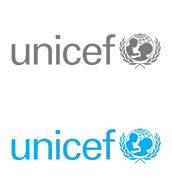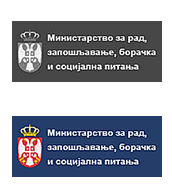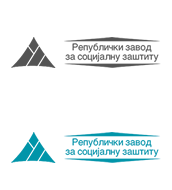10.06.2020
Become an active participant in your child's digital life
Due to the declaration of the pandemic caused by the virus "COVID-19", there has been a change in the way classes are organized. Children and young people spend more time in front of the screen than usual due to following lessons from home. It does not represent a big change for children, considering that they are already part of the digital world. This type of teaching requires greater engagement, as well as the responsibility of parents to find the right measure in the use of digital media, while at the same time protecting them from abuse and inappropriate use of the same. This can be an ideal chance for foster parents to follow and guide children through the digital reality where they currently spend most of their time during the day. "How to recognize accurate information in the world of media, how to sort and retain information that is useful to us"? This is the most common question that children and foster parents ask themselves. Information and advice that is not correct is often circulated through the Internet, social networks, and even text messages.
It is very important that parents and children develop critical thinking in order to be able to distinguish quality from low-quality sources of information. Therefore, the emphasis is not on the quantity but on the quality of the time spent on the Internet. Foster parents are adults who are more emotionally mature and have more life experience, while today's children are born and grow up in digital reality. They often do better in the digital world than foster parents.
The challenges posed by 21st century technology represent the need for parents to change, admit to themselves that there are things they do not know and learn from children.
Associate of the CPSU NS, Divna Kovačević, Master of Education, offers the following specific advice for quality and useful use of digital media for children in foster care and foster parents: Set aside time for children, find a reason to talk, show sincere interest in the children's activity on the Internet (carefully ask the child what he is currently doing; does he use "Snapchat", "TikTok", etc.), ask them for their opinion, actively listen to them and show understanding of what they are saying, appreciate their statements, support them and empower their capacities by relating them to your life experience.
Through two-way communication, children develop trust and the initiative to start a conversation with you. Offer your child different digital learning platforms. If you are not sufficiently informed about educational platforms, do not hesitate to ask teachers who can be a valid resource. Consult with them, listen to their recommendations and experiences.
Depending on the age of the child, you can suggest some of the following educational digital tools for online learning:
https://zelenaucionica.com/?fbclid=IwAR2o3-9y5oJ3DFI8l3nQDvd1LOOOoJiZYp2BEJjeBQzIiS0Lr2voRjK4qRA
https://www.unicef.org/serbia/otvoreni-obrazovni-digitalni-alati-za-interaktivnu-nastavu-i-ucenje-preko-interneta
Suggest to the child that you watch a cartoon or a movie together (depending on the age of the child). Let the child choose the movie of his choice. Accept the child's choice and examine the reasons why he chose that movie.
After finishing it, you can start a discussion about the plot of the film, about the actor's behavior and connect situations from the film with events in real life. In this way, the child develops rational control. Watch the tutorials on YouTube with your child, which can serve as an idea for creative mini-workshops that you can organize in your home. In this way, the child develops imagination, logic and the will to turn his ideas into a specific work. That work can be more or less useful in everyday life, but through the process of creation, they will learn the importance of personal creativity and expression of their abilities. The "DIY" creative corner offers interesting ideas and tips for children of different ages.
Children most often favor fun activities on the Internet, such as playing computer games, watching videos, chatting, etc. Do not deny them those activities that are a "waste of time" for you. There are games through which children can learn and improve various skills such as creativity, foreign language, ability to make decisions, how to cooperate, respect the rules of the game, etc. Children call certain games on the Internet "social games" during which they talk, laugh, socialize and thus acquire social skills. Certain games introduce them to historical facts and mythological characters, e.g. "Age of Mythology".
For children from the earliest to preschool age, you can suggest the following games that are adapted, interesting and educational:
https://pbskids.org/apps/peg--cat-big-gig.html
https://apps.apple.com/app/sago-mini-road-trip/id871230822
https://www.igrice-igrice.net/igre/Minecraft/
You can find fun, educational games for school-age children at the following links:
• https://igrezadecu.com/
• http://igrezadecu.com/
"YouTubers" have become the everyday life of children and young people. They actively monitor them, while the information they provide seems useless to foster parents. However, these contents can be a valid resource for developing critical thinking in children:
• Find out who "YouTubers" are,
• See the content they share
• Don't judge them
• Ask the children which of the available content is interesting to them
• Ask them how they know that a piece of advice or information shared by YouTubers is useful
• Whether and how they can check their usefulness.
In this way, you will encourage children to independently evaluate and conclude which information is important to them and which is not. These are just some of the ways to direct the child to be an active participant in the digital reality through content through which he is entertained, learns, sorts, classifies, organizes and thus expands and increases his knowledge. The positive effects that digital media can provide to children and young people are numerous, you just need to find a balance in using it and actively participate in the child's digital life.
Text author:
Divna Kovačević -
Master Pedagogue
Associate of the Center for Family Care and Adoption, Novi Sad









